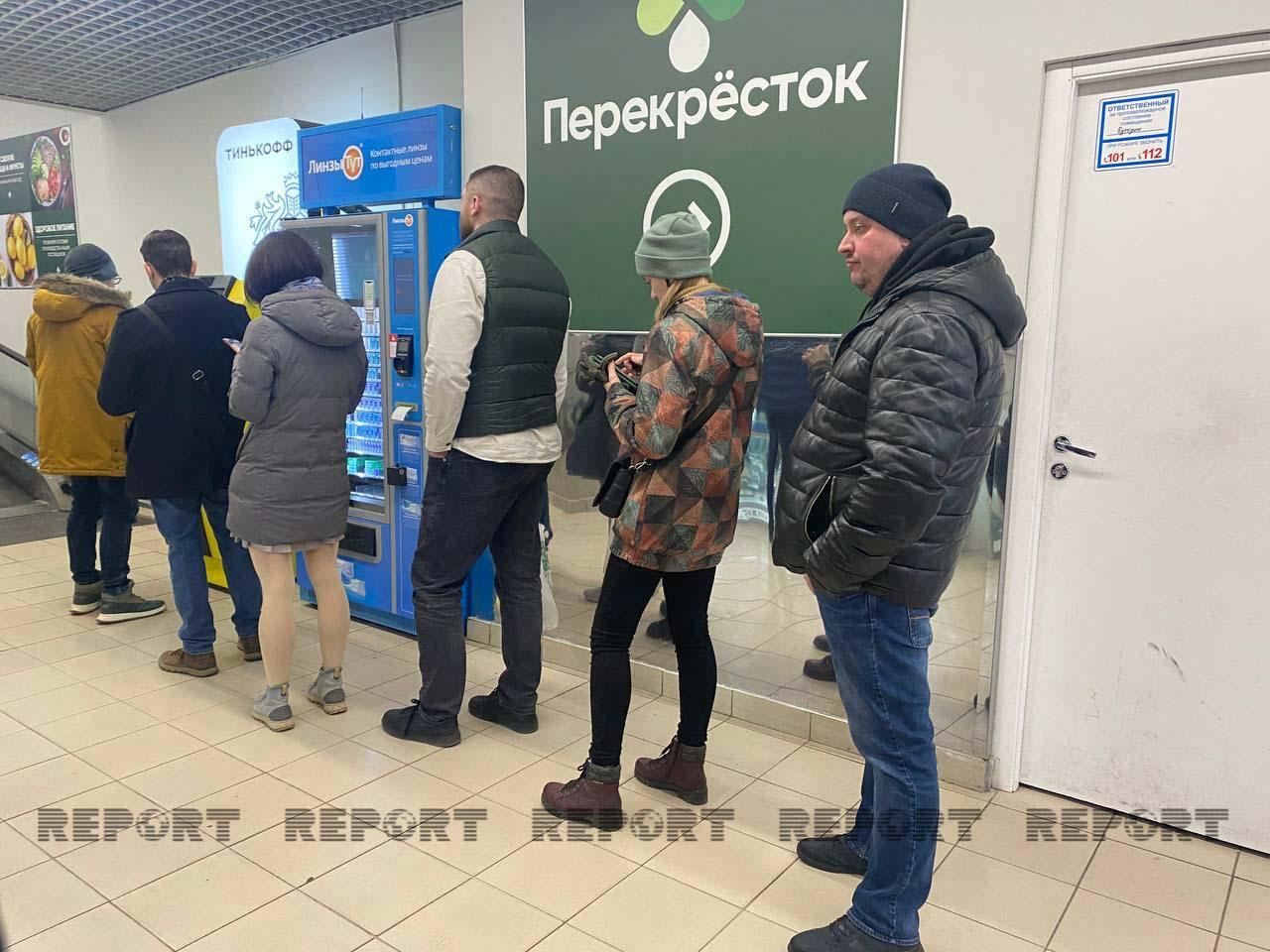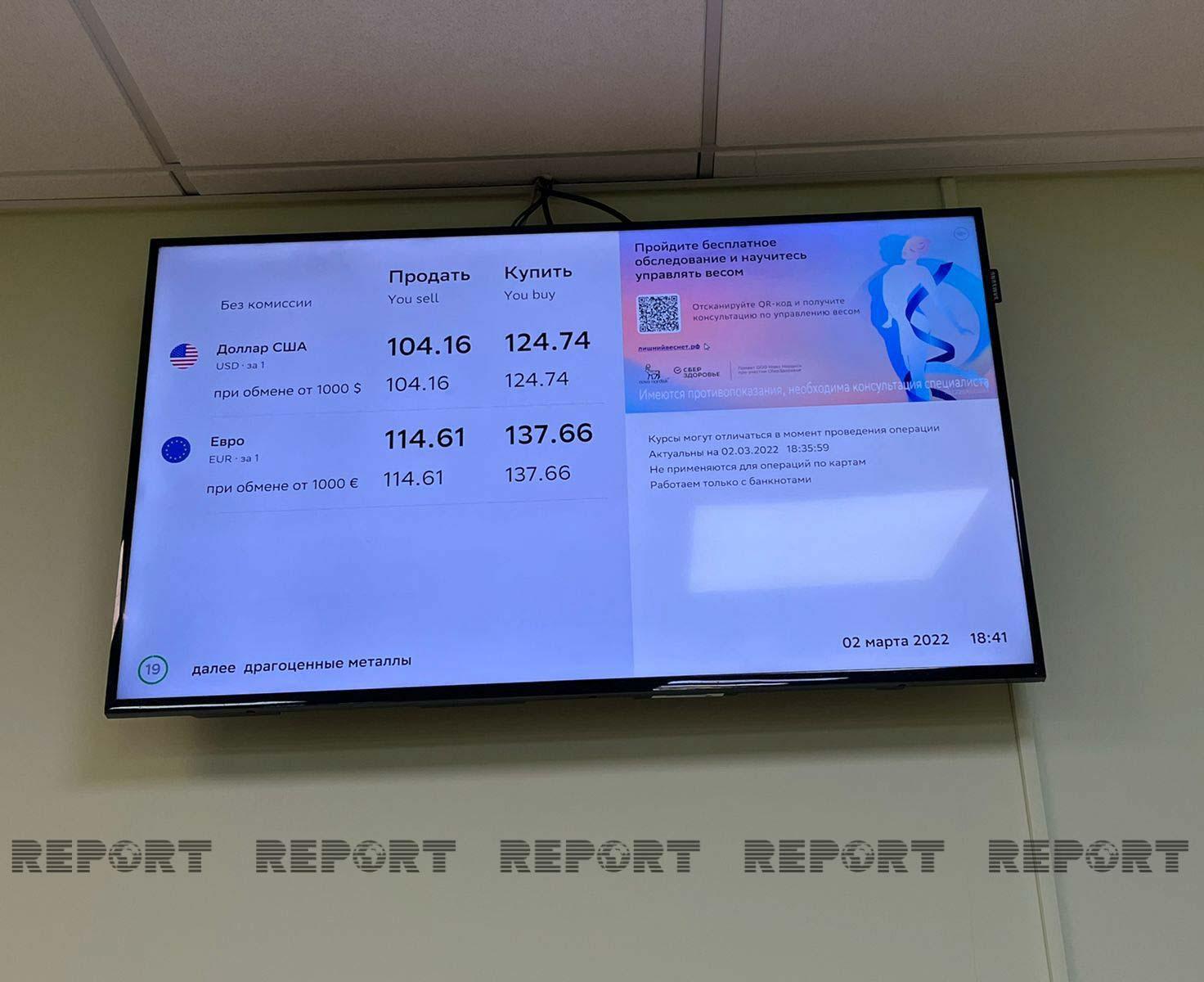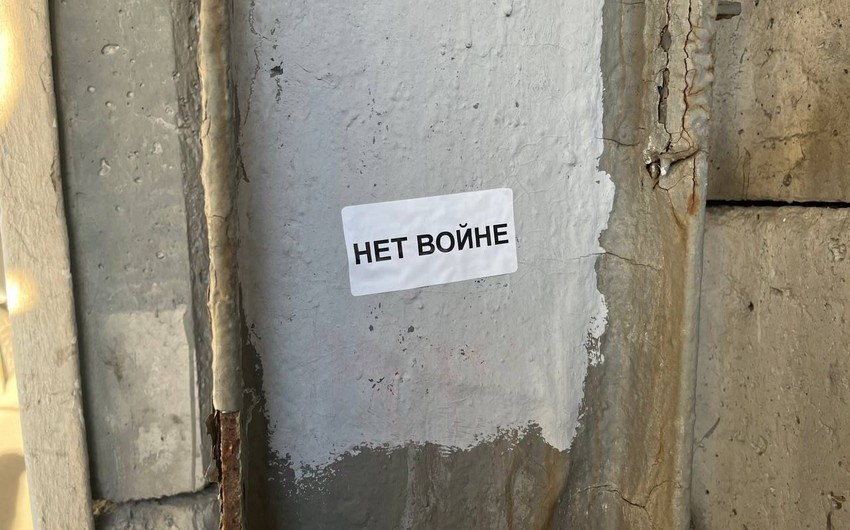On March 2, the White House announced the introduction of new restrictive measures against Russia due to its military actions in Ukraine. This is yet another package of sanctions, which, among other things, blocks enterprises in the Russian defense sector. US President Joe Biden promised that restrictive measures may also affect the energy sector of the Russian economy. Report's Russian bureau learned how the sanctions affected the routine of Moscow residents.
The introduction of sanctions dealt a blow to the Russian stock market and the national currency, which has experienced a major collapse and is getting cheaper day by day. To date, the price of the US dollar on the Moscow Exchange has reached the current maximum of 118.44 rubles, and the euro exchange rate is trading at 125.06 rubles. In one of the currency exchange offices in the center of Moscow, we were told that there was no cash at the cash desk, so it was impossible to buy foreign currency.

“There is nothing left. Everything is sold out, and at a breakneck pace,” said an employee of the Moscow foreign currency exchange office.
On March 12, Swift blocked access to its network for seven Russian banks that previously fell under Western sanctions, namely VTB, Rossiya, Otkritie, Novikombank, Promsvyazbank, Sovcombank and VEB.
VTB reported that the suspension from SWIFT would not affect the bank’s customer service in Russia, but it was no longer possible to transfer money to individual customers abroad.

“Russia has been isolated from the Western world, and this is causing enormous damage to the country’s economy. I haven’t had time to feel the consequences of the sanctions myself, but I’m sure this will happen soon, since we cannot avoid growth prices for food, goods and services. I hope that Russia will be able to avoid the devaluation of the ruble,” said Moscow resident Anastasia Mikhailova.
According to one of Report’s interlocutors, she felt the impact of the sanctions when she was unable to purchase the medicine she needed at the pharmacy. She noted that today it is difficult to make a decision on issues related to the correct distribution of funds.
Certain difficulties also affected the automotive business. In particular, the Ford Sollers automobile plant will suspend production in Yelabuga (Tatarstan) from March 3, the company’s press service said. A similar situation has developed with the German concern BMW, which announced the cessation of car assembly in Kaliningrad and the export of cars to Russia. Mercedes cars have also suspended deliveries. Prices for already imported cars actually rose by 25-40%.
Young residents of the capital mostly complain about the suspension of Apple Pay. It became much more difficult to pay for goods and services, they said.
“I already start to feel sanctions on myself, as I planned to purchase Apple products," said Moscow resident Mikhail Kotlyakovsky. He added that the prices in this sphere have skyrocketed and there are no deliveries any longer.
"Apple Pay has been turned off, which is also very inconvenient,” he said.
The survey showed that many residents have already begun to feel the impact of the sanctions crisis. However, they fear that the situation will only get worse in the future. Speaking about their attitude to Russia’s actions in Ukraine, the interviewed Moscow residents said that they are against it, but they don’t see any other ways to solve the problems that had arisen.


